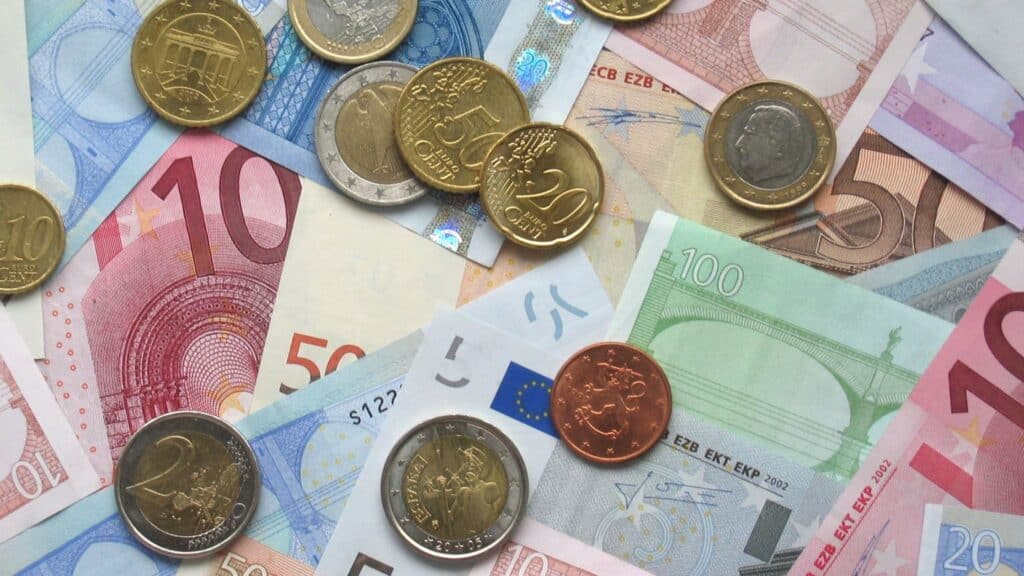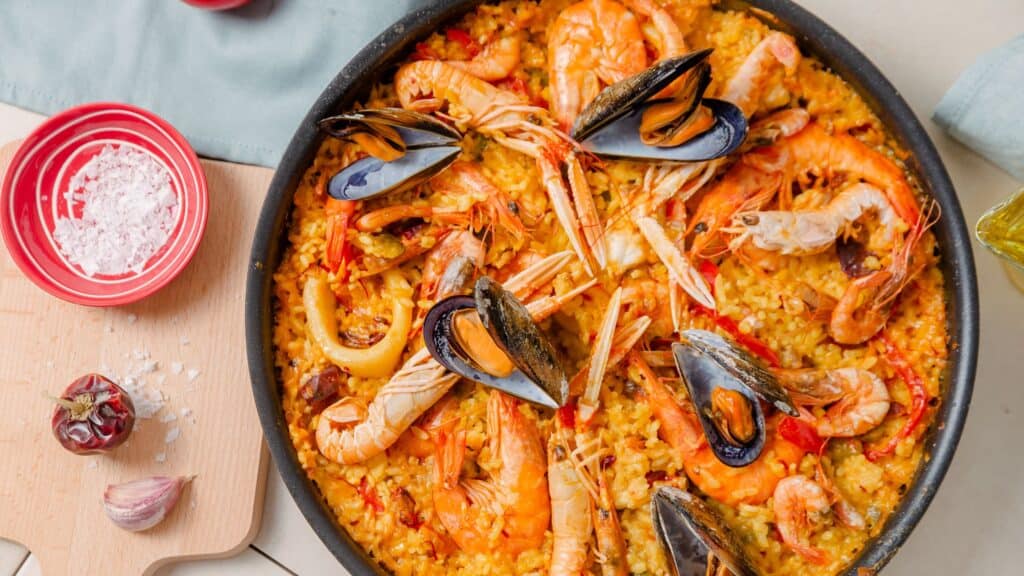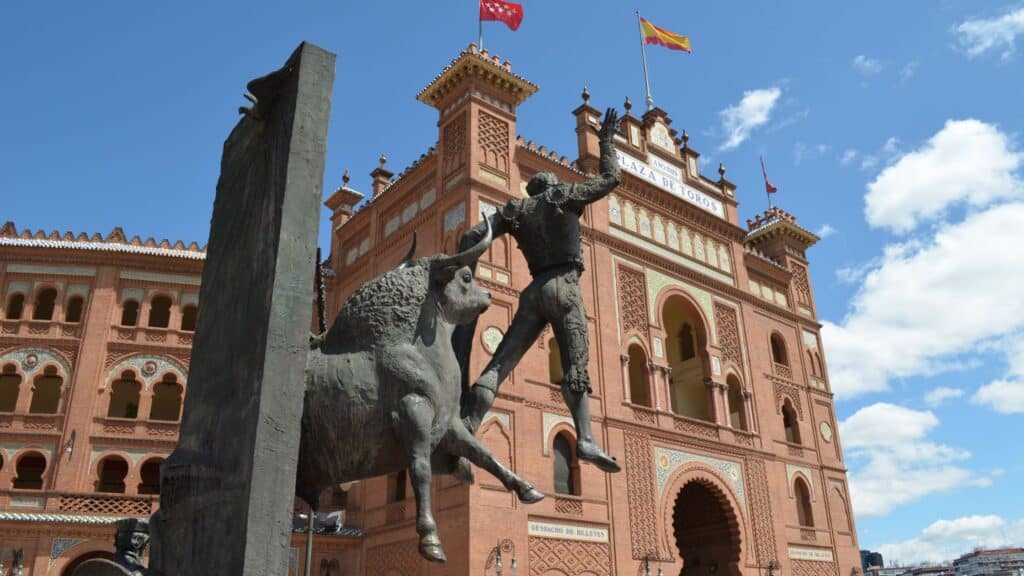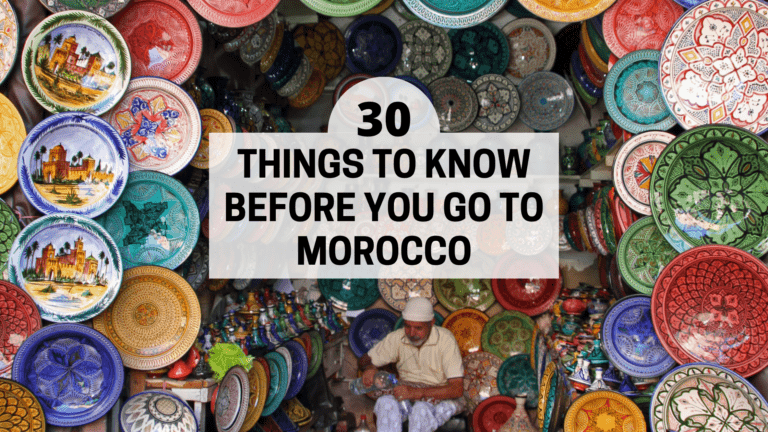30 Important Things to Know Before Going to Spain for the First Time
Spain is a vibrant and diverse country that offers something for every type of traveler. From its beautiful beaches and stunning countryside to its rich history and world-renowned cuisine, Spain has it all. But – you don’t want to be caught unprepared, especially if it’s your first time visiting Spain! Planning a trip to Spain can be overwhelming, so be sure to read this full guide on Things To Know Before Going to Spain!
PS: This post was fact checked by my best friend that is a Spanish local! 🙂 You’ve got all the best Spain Travel tips and recommendations below!

I’ve organized the things to know before going to Spain by categories; click below for quick navigation:
Basic Spain Travel Tips
Currency in Spain
The national currency in Spain is the Euro. Make sure to exchange currency before you arrive or use a credit card that doesn’t charge foreign transaction fees. You can find the current Currency Exchange Rate here – be sure to download the app as well for easy use when traveling to Spain!

Language in Spain
Spanish is the official language of Spain, however there are many people that speak English in tourist areas. It is still important to learn a few basic Spanish questions which I’ve included below:
- ¿Habla inglés? – Do you speak English?
- ¿Cuánto cuesta? – How much does it cost?
- ¿Dónde está el baño? – Where is the bathroom?
- ¿Dónde está el hotel? – Where is the hotel?
- ¿Puede ayudarme? – Can you help me?
However, do note that there are a few other languages spoken in Spain: Catalan, Galician, and Basque! These languages are often found in the countryside.
Time Zone
Spain is on the Central European Time (CET).
Tipping in Spain
Tipping is not expected but rounding up the bill is appreciated. If you had wonderful service, you can certainly tip 10-15%. Be mindful that some restaurants in touristy areas will apply an automatic tip (aka service charge) to the bill – there is NO need to tip additional on top of that!
Related Link: Full Itinerary for 24 Hours in Madrid
Transportation in Spain
Spain has an extensive public transportation system, including trains, buses, and subways. Taxis are also widely available, but make sure to confirm the fare before getting in. You may also utilize the Uber app or Cabify in Spain!

WiFi Accessibility / SIM Card
Spain has great options for free WiFi, with many cafes, hotels, and public areas offering free WiFi.
You can also purchase a local SIM card for your phone from one of the many mobile operators, such as Vodafone, Orange, and Movistar. The cost of data plans varies depending on your usage and length of stay, but it’s generally affordable.
I personally just use the AT&T international plan which is about $10/day for unlimited data abroad!
Vaccines
There are no special vaccines needed to visit Spain. The CDC’s Spain Vaccine Guidelines only recommend the routine vaccines that majority of Americans already have in order to visit Spain.
Passports & Visas
In order to visit Spain, everyone needs a valid passport with an expiration date that is at least 3 months away. Americans do not need a Spanish visa if they are staying under 90 days in the country of Spain. Passport guidelines and restrictions can be found here for Spain.
Hidden Gems in Spain
If it is your first time visiting Spain, you’re liking going to visit Madrid, Barcelona, or both! However – don’t forget to add a few hidden gems in Spain to your itinerary! There are so many other cities in this country that are worth visiting: wine region, coastal cities, and more!
Safety Spain Travel Tips
Pick Pocketers
There are many pick pocketers in the touristy areas of Spain. I have personally witnessed this myself twice as people have stolen cameras and wallets out of my own bag! Be very mindful of your belongings, try not to wear backpacks, and avoid bags that don’t have a secure zipper.
Pedestrian Traffic
Spanish drivers can be aggressive, so be cautious when crossing streets.
Common Scams in Spain
There are a few common scams in Spain that tourists should be on the lookout for. Common Scams are important things to know before going to Spain so you can be on the lookout for them! These scams include:
- Women or girls offering flowers to you on the street will then demand euros after you hold the flower. They’ll continue to chase you around the city until you pay, even if you give the flower back.
- If locals come up and offer to clean “bird poop” off your back, it is typically a scam to get close to you and try to pickpocket from you!
- Some locals may pretend to be a cop with a bogus ID card and demand to see your wallet and ID for “verification” – they will then run off with it!
- Taxi drivers can easily recognize tourist. They will try to charge exorbitant fees if the rate is not mutually agreed upon at the beginning of the ride.
Solo Female Traveler Safety in Spain
Spain is overall a safe country for solo female travelers. However, solo female travelers should still be mindful of the surroundings, especially at night, and stay in well-lit and crowded places. Avoid wearing headphones that might make it easy for someone to surprise you and avoid dark alleys.

Cultural Spain Travel Tips
Spanish Cuisine
Spanish cuisine is a diverse and flavorful blend of regional specialties and traditional dishes. Many of the country’s most famous dishes are based on fresh ingredients such as olive oil, tomatoes, and seafood.
Tapas, or small plates, are a popular way to sample a variety of flavors and textures, from salty ham to creamy cheese to spicy peppers. Paella, a rice-based dish typically made with seafood or chicken, is another popular dish that originated in Valencia.
Other traditional dishes include gazpacho, a cold tomato soup, and tortilla española, a potato and egg omelet.
One of the other important things to know before going to Spain is that locals tend to eat late in the day… lunch is around 2-3PM and dinner is around 9PM-11PM!

Spanish Wine
Fun Fact: Spain is the third-largest wine-producing country in the world. Spanish wine is among the most diverse in the world, with regions like Rioja and Ribera del Duero producing some of the finest red wines. Locals drink Red Wine almost as much as they drink water!
Friendly note: Sangria is a touristy drink. Not many locals opt for Sangria as they prefer their local red wines. If you’re looking for something similar to Sangria that is a little less touristy, try “tinto de verano”.
Spanish Siestas
Yes, sietas are a real thing in Spain! The Spanish word “sietas” translates literally to “naps”. But in reality, most Spanish locals use their “siesta” time to rest rather than full on nap.
Sietas can take place between 2PM-5PM and are most common in smaller cities. You’ll find that some restaurants, shops, and business are completely closed for their daily siesta.
Spanish Nightlife
Spanish nightlife is known for its lively atmosphere and late hours. Bars and clubs typically open around midnight and stay open until dawn. Popular destinations for partying include Madrid, Barcelona, and Ibiza, where you can dance to a variety of music genres including techno, salsa, and flamenco. Many clubs have dress codes, so it’s important to check ahead of time.
One of the important things to know before going to Spain is that their nightlife/clubs don’t really begin until 12AM-1AM… and it continues into the early hours of the morning (4AM or 5AM). Prepare yourself for a long night!
Related Link: Full Itinerary for 24 Hours in Madrid

Spanish Greetings
Greetings typically involve a kiss on each cheek.
Spanish Punctuality – or lack thereof
Locals in Spain are notorious for being late. This includes public transportation, event start times, and more. It’s best to still plan for the time it is scheduled (just in case) but expect to be a bit delayed. Channel your inner go with the flow vibes and make the most of the delays!
Spanish Football (Soccer)
Football (soccer) is a beloved sport in Spain, with millions of fans across the country. The two most famous teams are Real Madrid and Barcelona, who have a long-standing rivalry known as El Clásico.
The country’s national team has also achieved great success, winning the FIFA World Cup in 2010 and the UEFA European Championship in 1964, 2008, and 2012. Football matches are an exciting and integral part of Spanish culture.
Spanish Festivals
Spanish festivals are known for their colorful traditions and lively celebrations. The country hosts numerous festivals throughout the year, ranging from religious processions to music and dance events. Some of the most famous festivals include:
- La Tomatina (Buñol) – a tomato-throwing festival
- Running of the Bulls (Pamplona) –
- Feria de Abril (Seville) –
- Fallas Festival (Valencia) – , which features elaborate sculptures and fireworks.
Spanish Bullfighting
Bullfighting, or corrida de toros, is a controversial tradition in Spain that dates back centuries. While it is considered an art form by some, others see it as a cruel and outdated practice. Despite growing opposition, bullfighting remains legal in some regions of Spain and continues to draw crowds.

There you have it – the most important things to know before going to Spain! If you have other tips or recommendations, feel free to drop them in the comments below! But most of all – enjoy your trip to Spain knowing that you understand the basics and have a good foundation of expectations!

PS – Be sure to save this post on Pinterest: 30 Things To Know Before Going to Spain
Looking for Guides on Things To Know Before Visiting Other Countries? Check out my series below:








One Comment